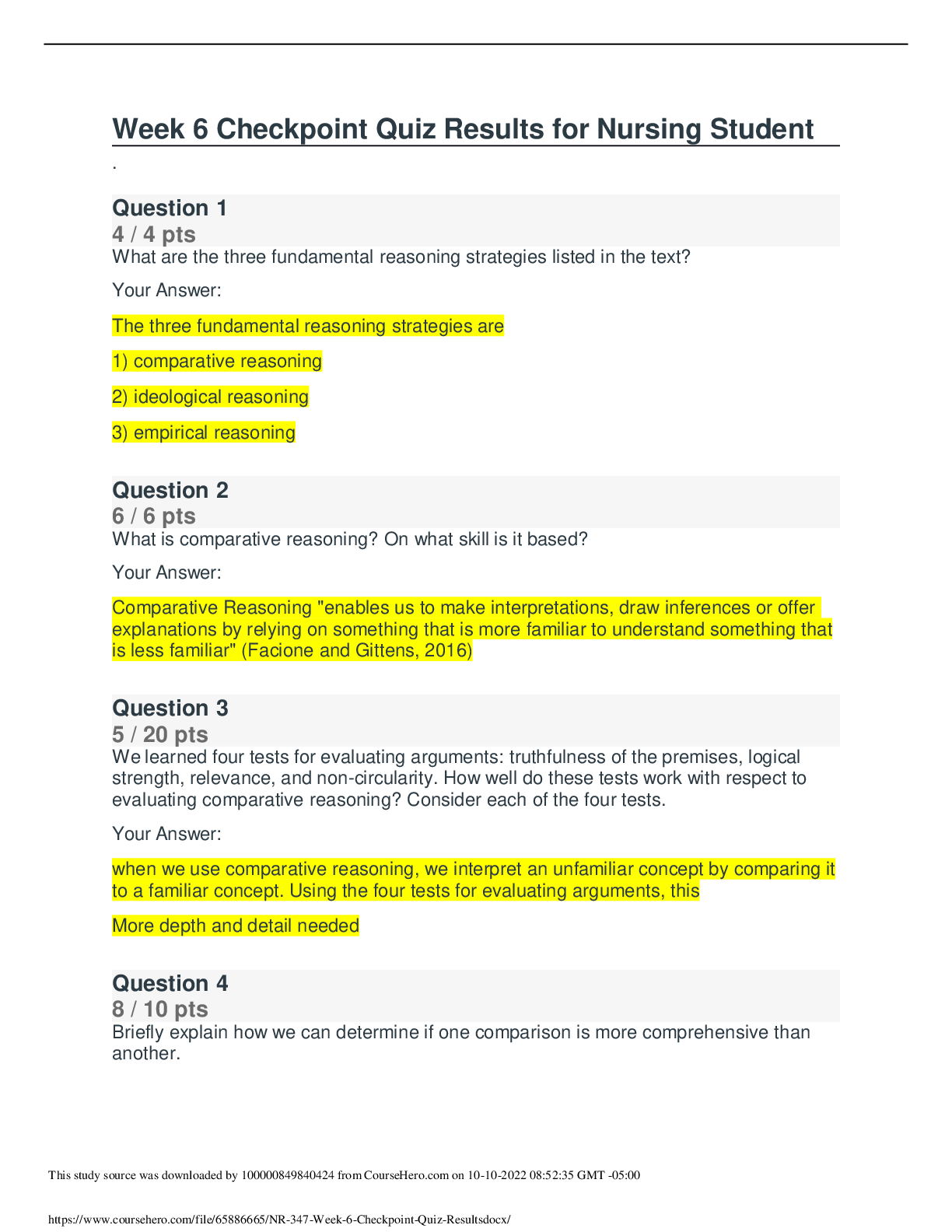Philosophy > EXAM > PHIL 347 Week 6 Checkpoint Quiz PHIL 347 Critical Reasoning - Dec 2020 (All)
PHIL 347 Week 6 Checkpoint Quiz PHIL 347 Critical Reasoning - Dec 2020
Document Content and Description Below
What are the three fundamental reasoning strategies listed in the text? Question: What is comparative reasoning? On what skill is it based? Question: We learned four tests for evaluating arguments... : truthfulness of the premises, logical strength, relevance, and non-circularity. How well do these tests work with respect to evaluating comparative reasoning? Consider each of the four tests. Question: Briefly explain how we can determine if one comparison is more comprehensive than another. Question: According to the text, the basic question to ask when evaluating a comparison between two objects or ideas or events is “Are they alike enough in the important ways or not?” (p. 248). What are those “important ways” that determine the credibility of conclusions based on similarities? Question: In your own words, define empirical reasoning. Question: What are the three defining characteristics of empirical reasoning? Question: … meant by “the null hypothesis”? Question: What is the purpose of empirical reasoning? Question: How do we evaluate empirical reasoning? Question: _ part of a research study addresses the test for logical strength, and how is it … ? Question: Briefly explain the process of peer review. What is the process of peer review … to do? Question: The authors of our text state: “We have 40 years of data across multiple studies that confirm the positive correlation between taking a course in critical thinking and improvements in the students’ pretest to post-test critical thinking skills scores. It would be a mistake, therefore, all things being equal, to say that growth in critical thinking and taking a course in critical thinking are unrelated” (p. 290). The null hypothesis is false. Does that mean, therefore, that taking a critical thinking course causes students to become more skilled at critical thinking and more motivated to use those skills? Explain your answer. Question: If reasoning is empirical, contains statistics, and appears in print, should we take for … that it has … the four tests of truthfulness of the premises, logical strength, relevance, and non-circularity? Explain your answer. [Show More]
Last updated: 2 years ago
Preview 1 out of 5 pages
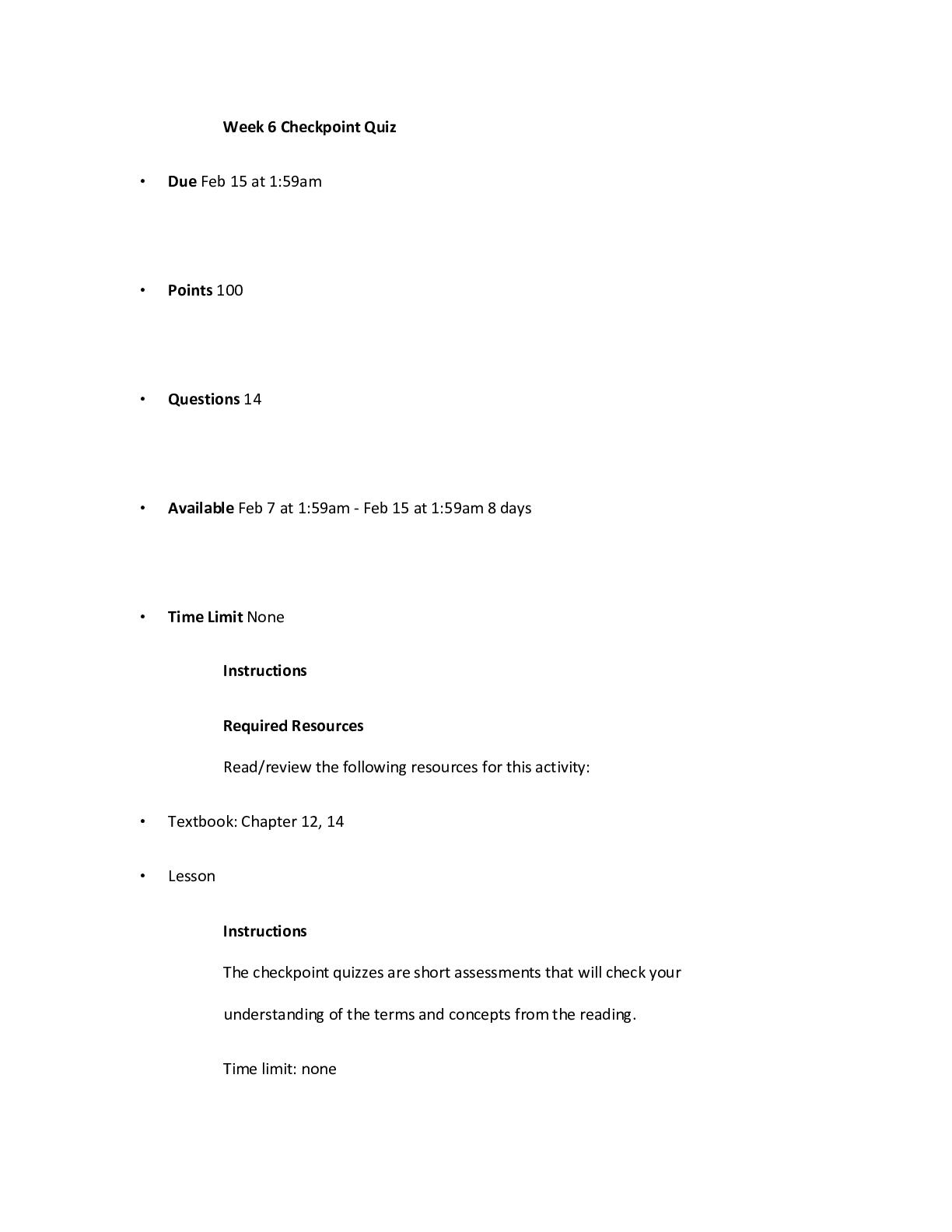
Buy this document to get the full access instantly
Instant Download Access after purchase
Buy NowInstant download
We Accept:

Reviews( 0 )
$15.00
Can't find what you want? Try our AI powered Search
Document information
Connected school, study & course
About the document
Uploaded On
Mar 23, 2021
Number of pages
5
Written in
Additional information
This document has been written for:
Uploaded
Mar 23, 2021
Downloads
0
Views
181

.png)
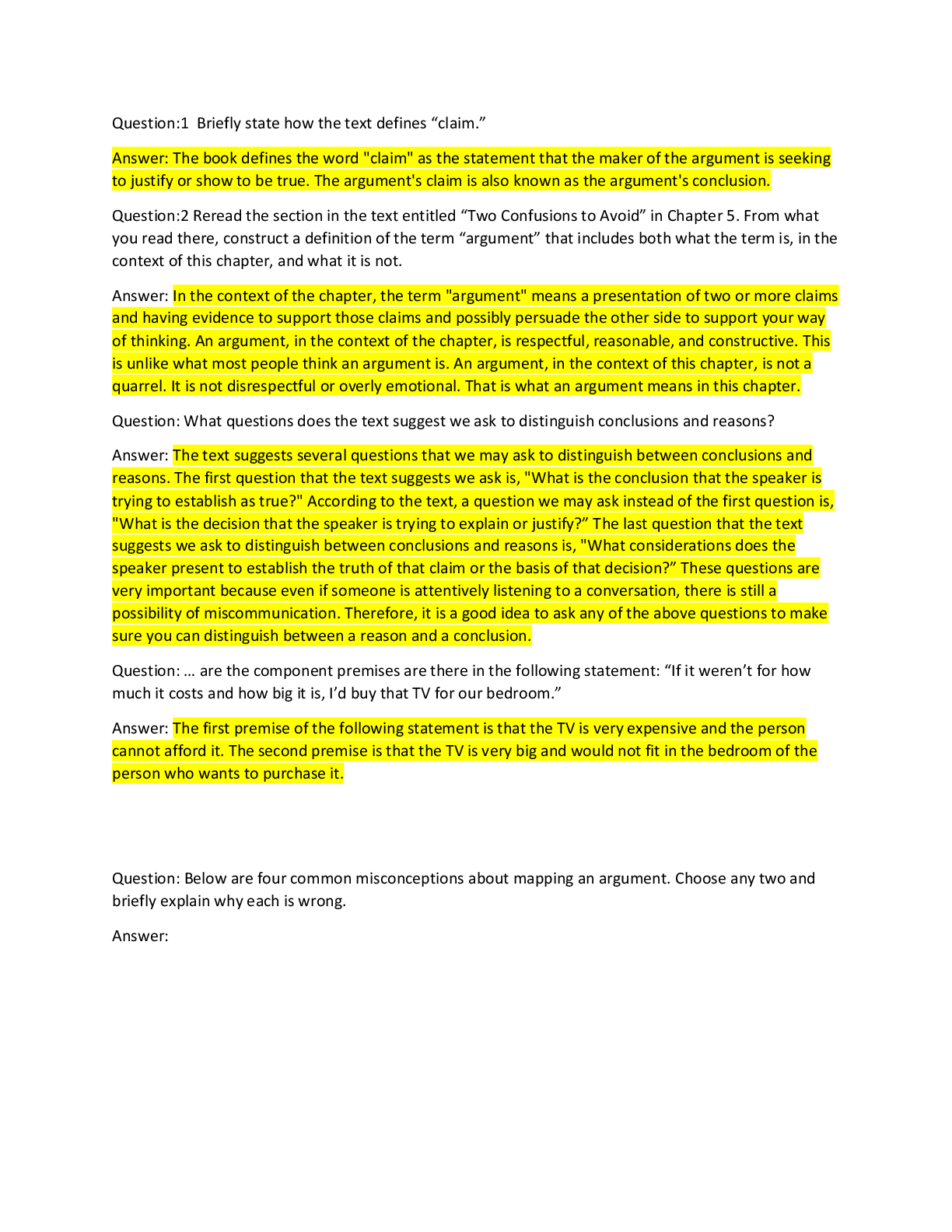
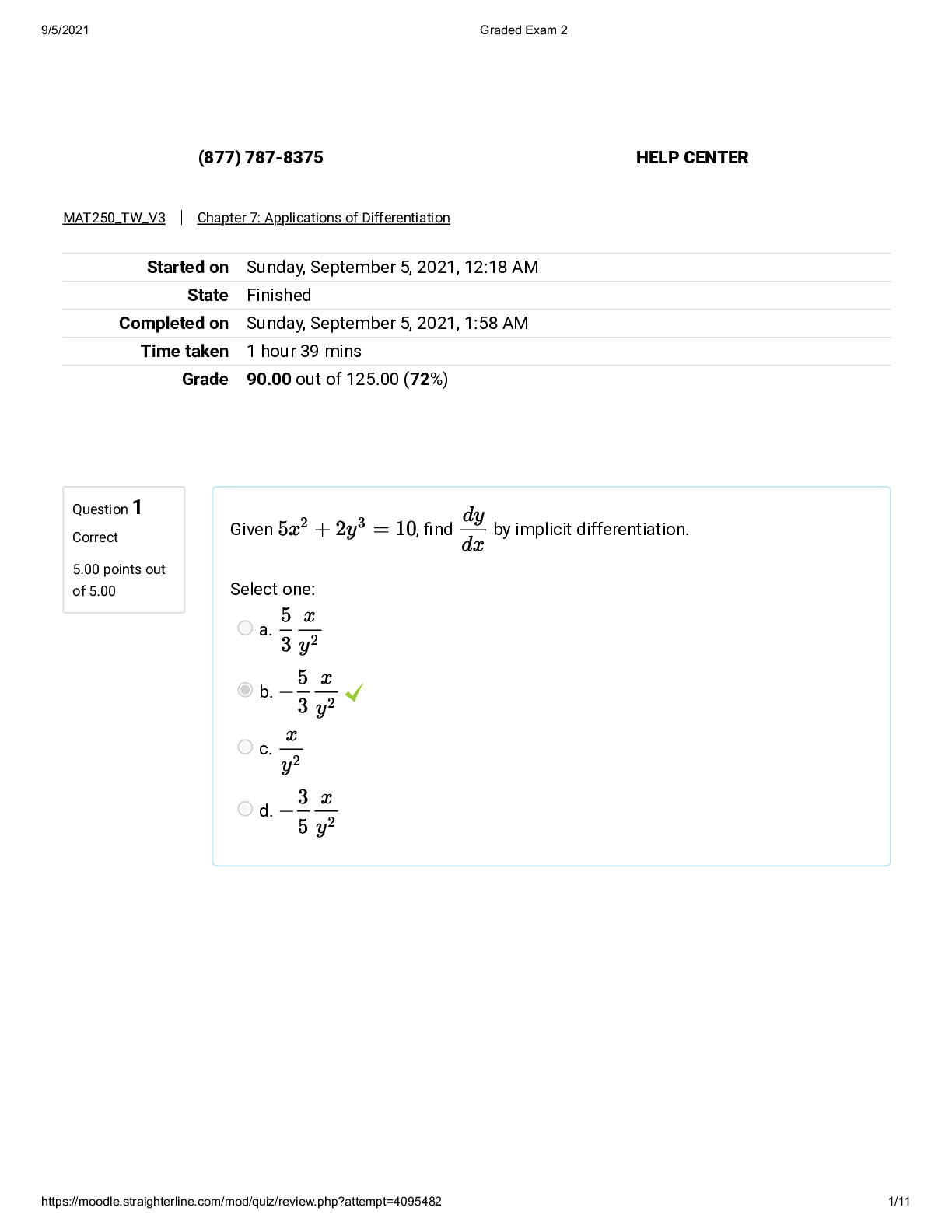
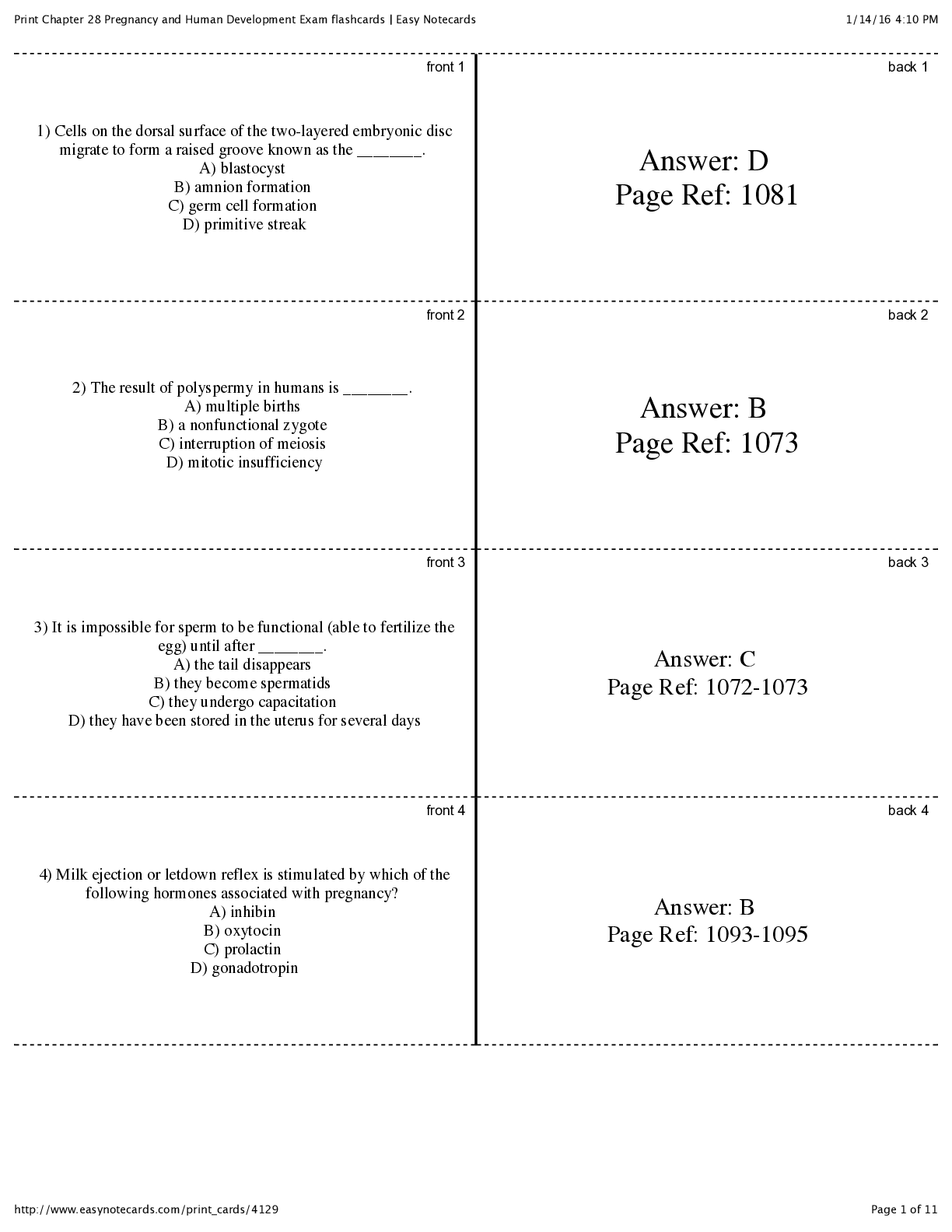
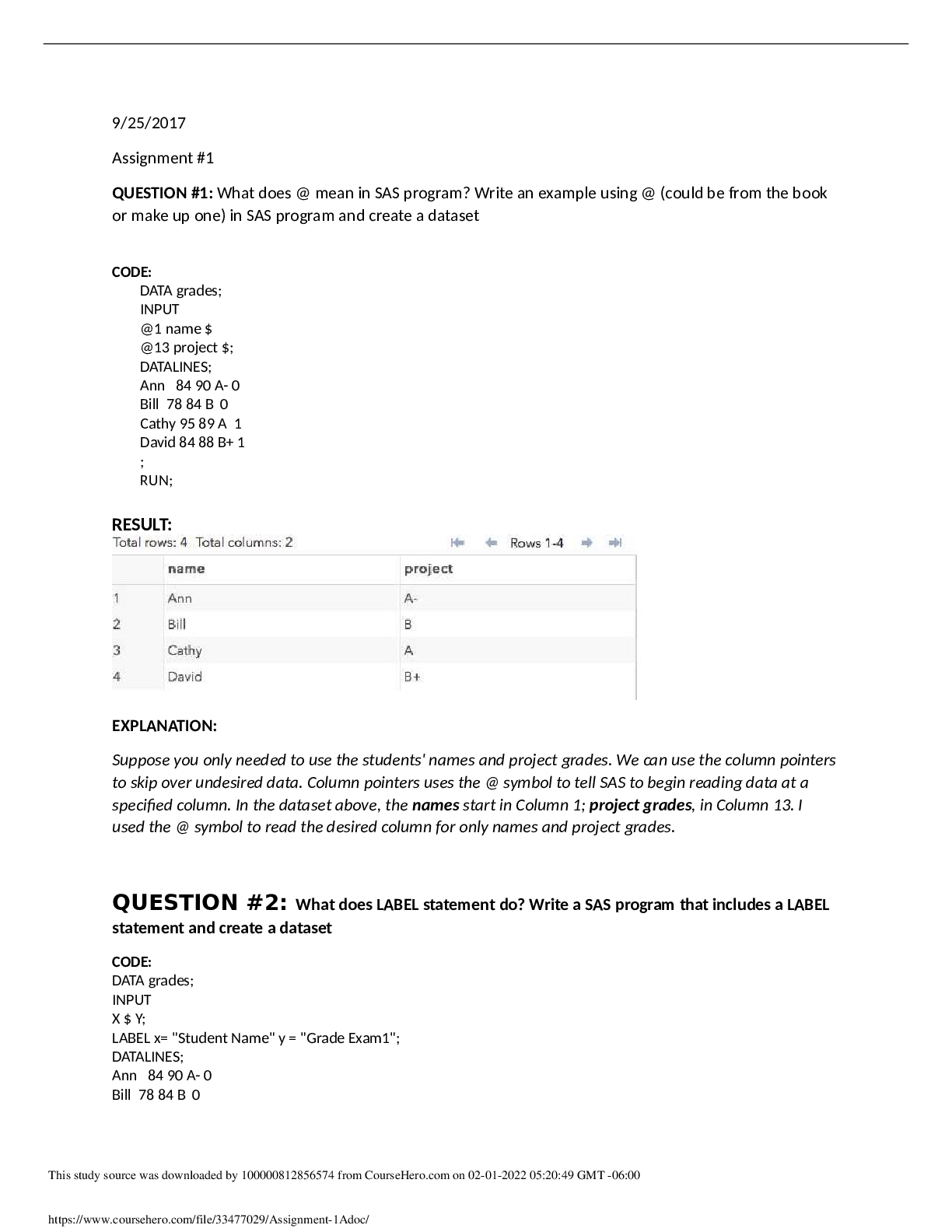

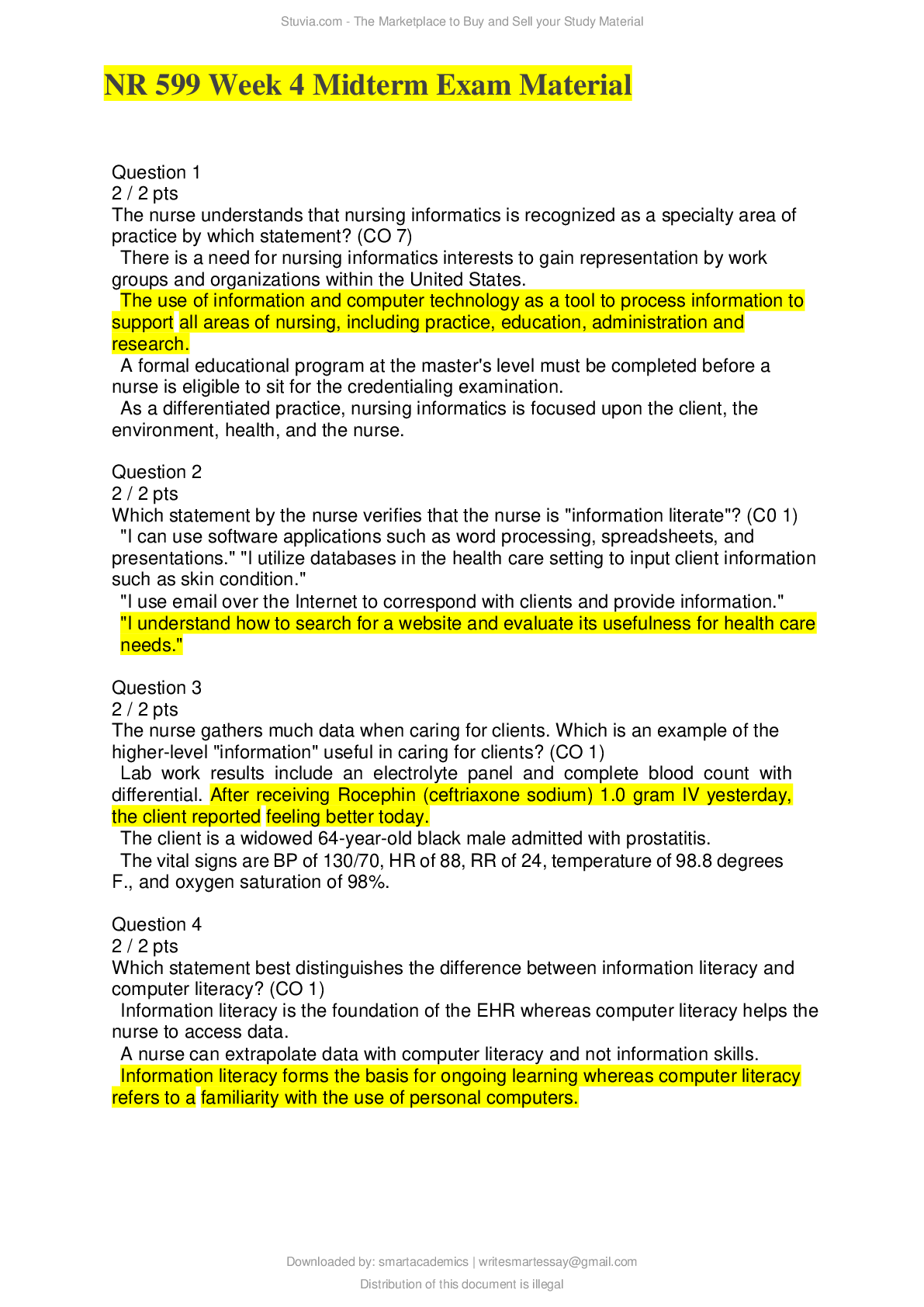
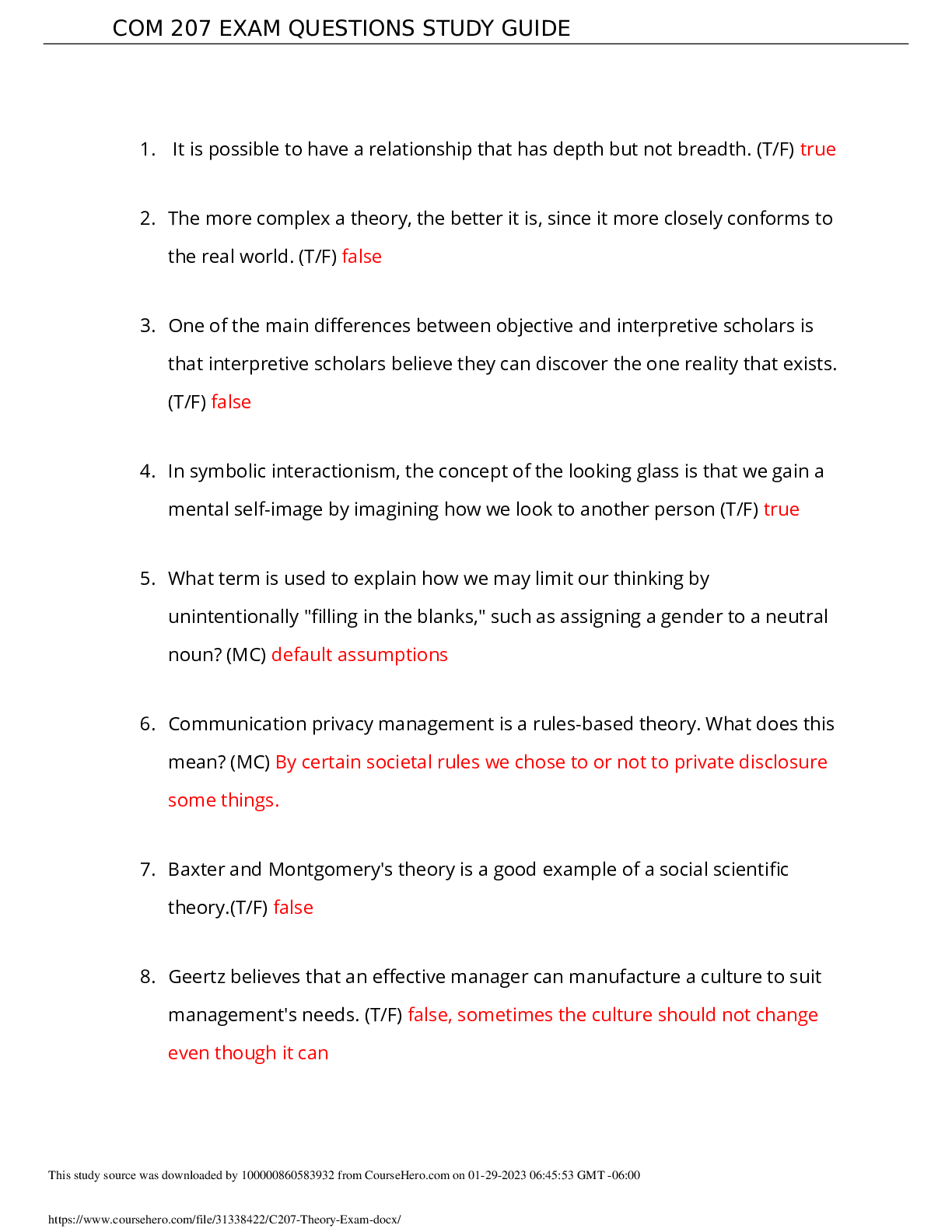
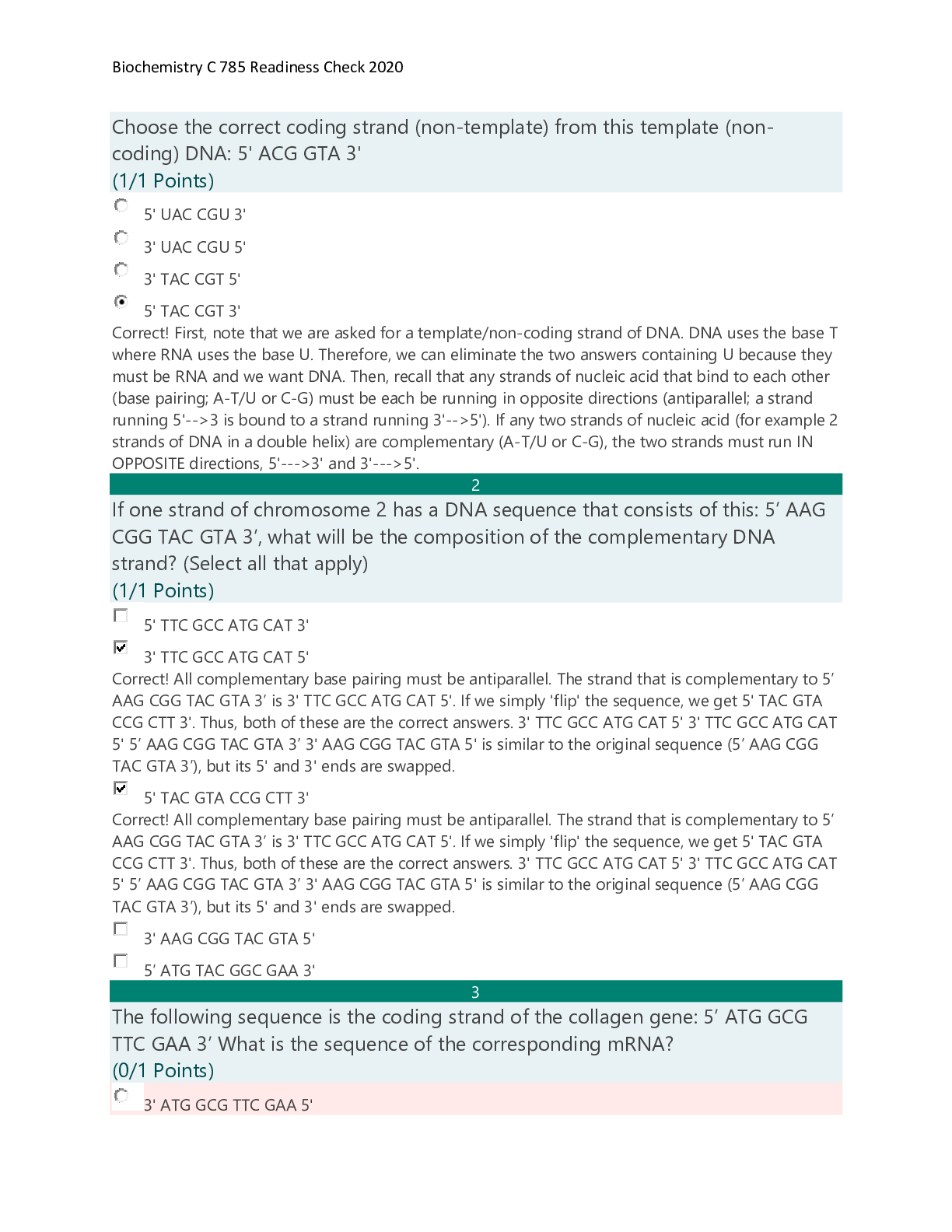
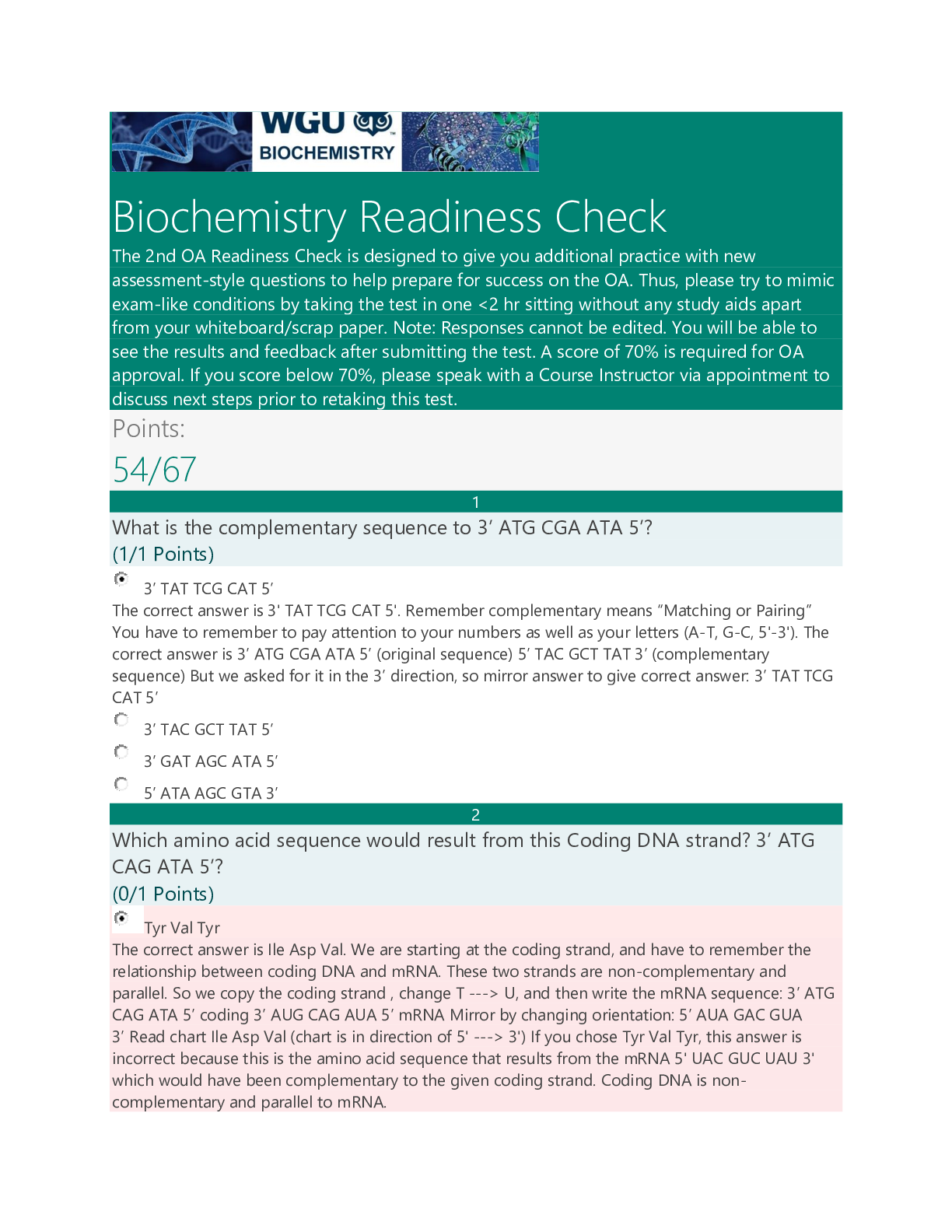

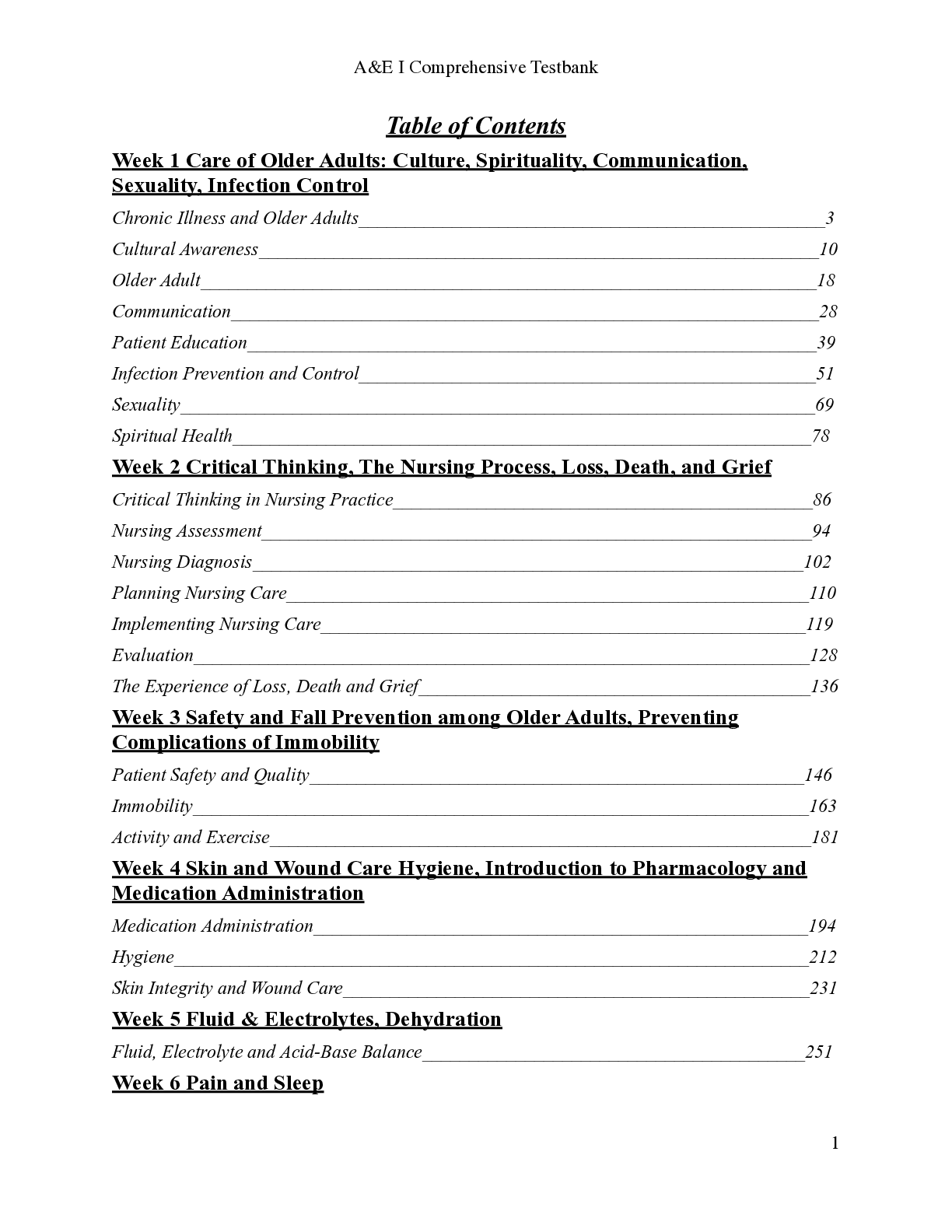

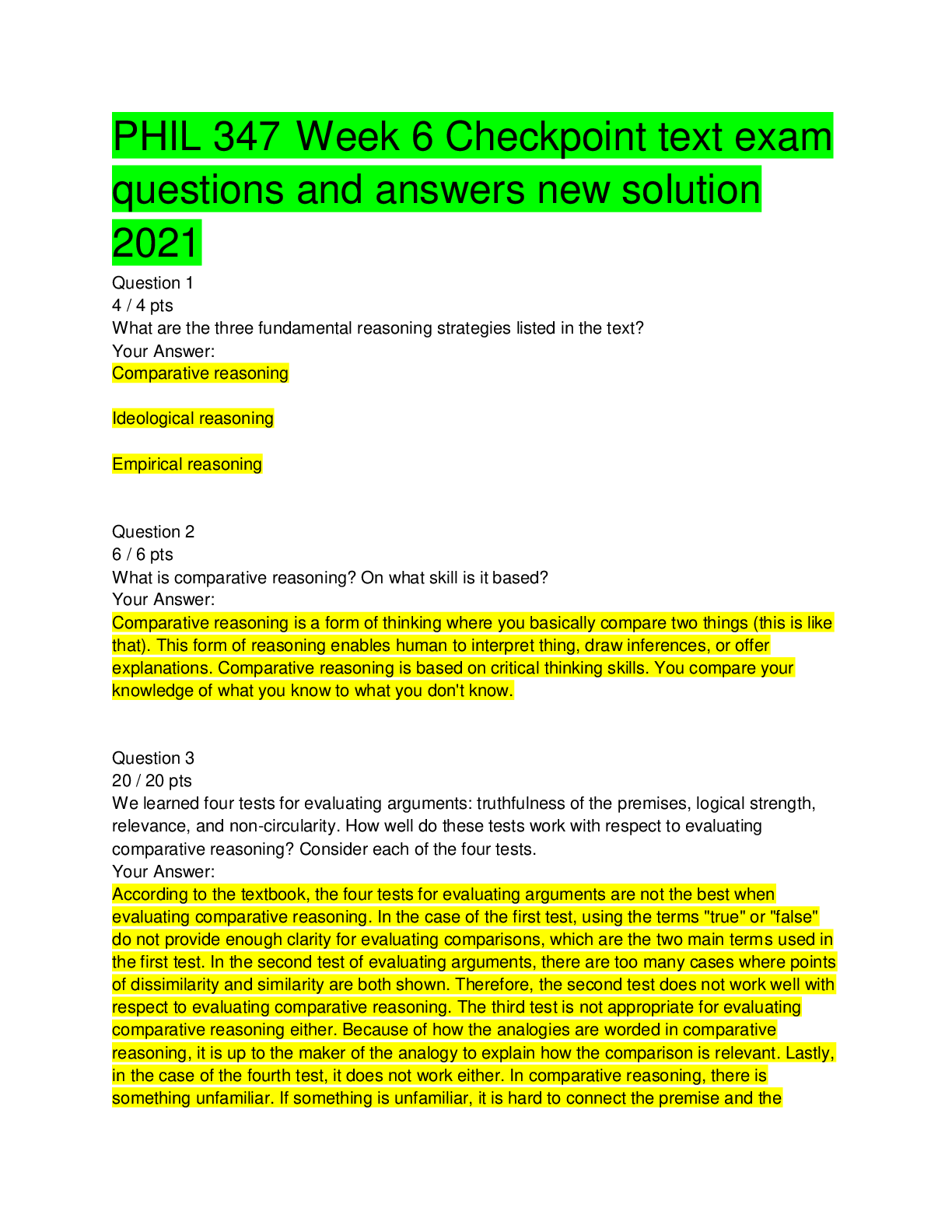
.png)


.png)


